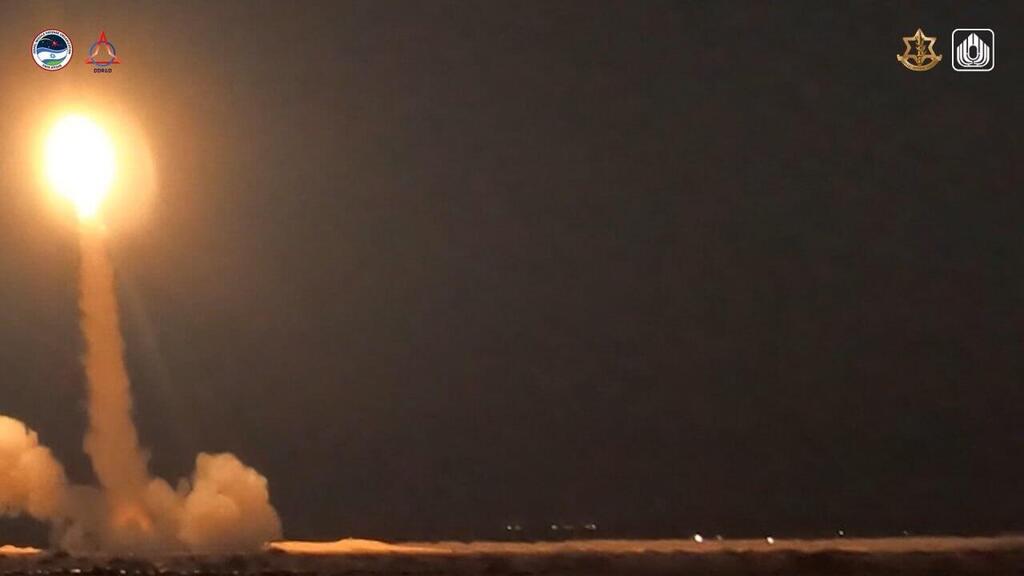The successful interception of swarms of missiles and drones fired from Iran toward Israel by the Israel Aerospace Industries (IAI)-produced Arrow system, among others, has sparked significant global interest.
"It's a day of pride for many of our employees, who work day and night and in the end, everything converges to one event," IAI CEO Boaz Levy told Ynet in an interview, adding that the company has received numerous supportive phone calls from customers worldwide before and after the attack, expressing their appreciation for the performance of the system.
Levy highlighted the unprecedented nature of the attack, noting, "Yesterday was an attack the world had not known like it: the number of simultaneous threats, even in the Ukraine-Russia war, there were no attacks in such numbers and not in such a complex scenario of a number of threats of different types." He commended the phenomenal 99% success rate of air defenses.
Former financial advisor to the IDF chief of staff Brig. Gen. Reem Aminoach pegged the total cost of the interception operation at "4-5 billion shekels" ($1 million-1.3 million).
"We provide a sophisticated and innovative system, it does not cost a million dollars but it is not cheap," Levy says. "The price is not the issue here. Anyone who wants to defend themselves needs to look at the potential damage versus the benefit. That's the right calculation.
"I don't know how much the activity cost that night and I don't think anyone in such a short period of time knows how to estimate the price. At times like this, you don't look at the direct cost, but what would have happened and the damage that would have been if they had hit population centers or sensitive facilities. A country like Israel that needs to defend itself must have defensive weapons."
"Yesterday's attack comprised three types of threats: drones carrying relatively small warheads, cruise missiles and ballistic missiles. The Arrow system, which we have developed, is designed specifically to counter ballistic missiles. These pose the primary threat and carry the highest level of risk due to their high speed, quick arrival time - within 12 minutes from Iran, and the potential for large-scale damage due to the hundreds of kilograms of warheads they carry.
"Israel was targeted with dozens of these long-range ballistic missiles, and the Arrow system addressed this threat - from the detection of the threat by radar to managing the event, and finally launching the missiles. Arrow 2 targets at a relatively low altitude, still outside the atmosphere, and Arrow 3 targets at a very high altitude. The combination of these two systems provides a level of flexibility. For example, if a missile isn't intercepted at a high altitude, it can still be intercepted at a lower altitude."
In light of these achievements, it is expected that our already record-breaking order backlog will continue to grow.
"We are already on an upward trend: in 2023, our order backlog totaled $18 billion and our sales turnover was $5.3 billion. Seventy-one percent of our sales turnover is destined for export. It's clear that there are numerous conflicts around the world and numerous defense systems are needed. Our Arrow system is in demand and we have been marketing it to overseas customers for years.
"In my previous role in the IAI, I was the program manager and chief engineer of Arrow, and I know the system intimately. The Arrow project, which began in the late 80s as a feasibility study to determine if it was possible to intercept a missile with another missile, was the first of its kind in the world and was developed in partnership with the U.S. government. This was followed by the development of Arrow 2 and Arrow 3.
"I anticipate that after the war there will be further orders for the Iron Beam system, which includes the radars that detect the missiles and the launchers. The system isn't cheap, but it's essential for those who want to defend themselves (IAI does require American approval for system sales deals)."




